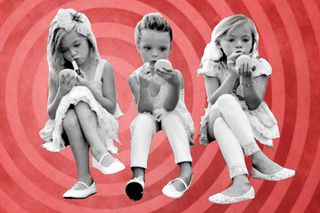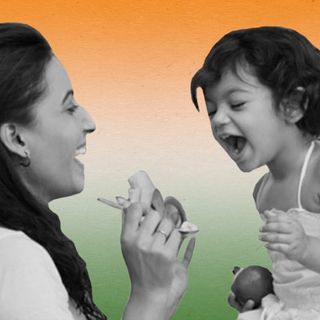
Parenting Styles Can Unintentionally End Kids’ Friendships
‘It’s not you, it’s my parents.’

Making a friend is hard work. Keeping one is even harder, especially for young children.
A new study published in the Journal of Family Psychology sheds light on why childhood friendships fall apart and is the first to suggest parenting style can play a role in these break ups.
“We already know that peer status plays an important role in friendship outcomes. For example, well-liked children have more long-lasting relationships than do their classmates,” said Brett Laursen, Ph.D., co-author of the study and a professor and graduate studies coordinator in the Department of Psychology at Florida Atlantic University. “Our study is the first to include both parent characteristics and peer social status in the same model to identify the unique contributions of parents to child friendship stability.”
Controlling for children’s social status, Laursen’s team, which included researchers at both FAU and the University of Jyvaskyla in Finland, looked at data from 1,523 children from grades one to six. They examined parents’ reports of their own depressive symptoms and parenting styles and used these reports to predict the occurrence and timing of the dissolution of best friendships from the beginning to the end of elementary school.
The researchers assessed two negative characteristics of commonly recognized parenting styles — behavioral control, such as curfews and monitoring, and psychological control, such as shaming and guilt — and one positive feature: warmth and affection. They also assessed parental depression to disentangle the unique contributions of parenting styles from mental health difficulties known to shape parenting.
The researches found clear evidence that negative parenting styles and mental health struggles with depression increase the risk that children’s best friendships would end. For children with clinically depressed parents, the risk of best friendship dissolution increased by up to 104%. There was a similar, although not quite as dramatic, increase in the risk of best friendship dissolution for children with psychologically controlling parents.
However, researchers were surprised to find no evidence that positive parenting styles characterized by warmth and affection increased the stability of children’s best friendships.
“We were hoping that positive behaviors would help extend the life of friendships and that it would be a buffer or a protective factor,” said Laursen. “This wasn’t the case — warmth and affection don’t appear to make that much of a difference. It’s the negative characteristics of parents that are key in determining if and when these childhood friendships end.”
It suggests that childhood friendships are by nature transitory; fewer than 10% of first-grade best friendships survived to the sixth grade, with roughly half dissolving within a year of initiation.
“Depressed and psychologically controlling parents create an [emotional] climate that is detrimental to a child’s well-being, with problems that spill over into the peer social world. Best friendships are one causality of this [emotional] spillover,” said Laursen. “We believe that children with depressed and psychologically controlling parents are not learning healthy strategies for engaging with other people, which could have long-term consequences for their future relationships.”
It’s worth noting that the study risks conflating unlike attributes. While parenting style is a choice, clinical depression is not. If anything, the study highlights the need to support parents holistically — with everything from positive parenting strategies to quality mental health care. Stronger friendships for children would be only one of the many benefits.
Related


Most Couples Fight About Their In‑Laws
